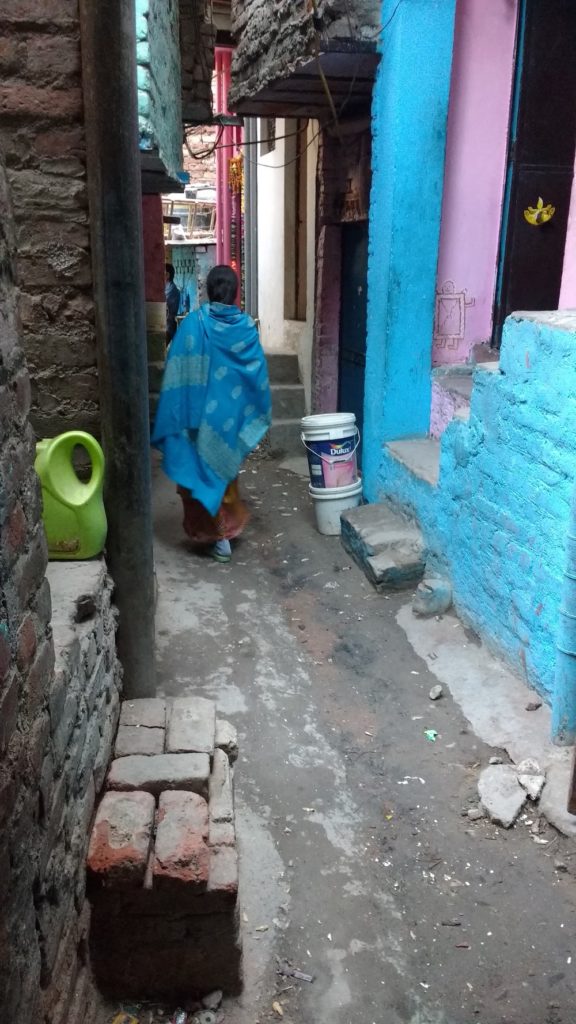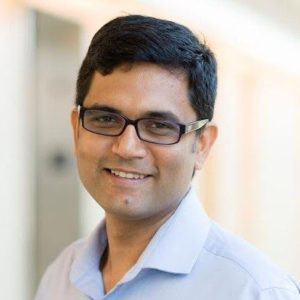
As people across the world come to terms with life during the global COVID19 pandemic, SFS students, faculty and alumni are working at the forefront of combating the virus and improving the quality of care for at-risk populations.
In 2016, a team of researchers from Georgetown University, Brown University and the Centre for Policy Research, New Delhi and Hyderabad Urban Lab, established the Urban Spatial Observatory (USO) to use socio-spatial data to explore how political and administrative forces create unequal urban development. Now, the USO has teamed up with the Delhi government’s relief efforts to assist in providing relief to vulnerable communities during the city’s lockdown measures.
Data for public good
Since its inception, the USO has been collecting data about informal settlement populations in Delhi to help provide access to services to communities who are overlooked in official government data. “Often what past policies have not recognized is that informal settlements are a physical and spatial manifestation of urban poverty, which continue to be geographically, socially and politically severed from the larger urban systems,” said Shubhada Ajay Varde, a recent Georgetown graduate. Geospatial data helps to make these communities visible and make basic services accessible to them.
When the Indian government announced a countrywide lockdown on March 24, the team decided to release their public services datasets and maps to the general public.
One map recorded all the locations of night shelters in the city and the locations of ration shops where poor people can buy groceries at subsidized rates. USO researchers also worked with the local government to create a map of 427 schools that have been converted into Hunger Relief Centers in Delhi. In total, the resource provided information about more than 600 locations where citizens could find help during the crisis.
The team were able to release the first map within four hours of the lockdown being announced. In the time since, the map has been viewed more than 300,000 times, after it was shared widely across social media, on Map My India’s COVID response map and on a Delhi government website. Relief volunteers and government workers have been able to access the information on their phones and send people to the nearest relief center when they need help, aiding countless individuals to find help in their area.

“An opportunity to help directly”
According to SFS assistant professor Rajesh Veeraraghavan, the project lead, the USO’s “vision is to render ‘legible’ patterns of access to public services in the city of Delhi. We hope to develop new tools for ‘seeing inequality’ by carefully combining fieldwork, community participation and satellite imagery.”
The virus interrupted the day-to-day work of the project, as some data collection methods are no longer feasible given the COVID response measures. “Our fieldwork has stopped,” Veerarghavan says. “We were planning to conduct surveys, which had to stop. But, we also realized [this was] an opportunity to help directly.”
Adapting the project to the new reality of the pandemic has emphasized the importance of the USO’s work for the research team. “Seeing our work be picked up and used by the government has been a very powerful reminder of why research like Professor Veeraraghavan’s needs to happen,” Sky Colloredo-Mansfeld (SFS’19), a Fulbright-Nehru Research Scholar and USO team member, explains. The SFS graduate first became interested in development in India after taking the SFS India Innovation Studio course and was working in Delhi before the pandemic cut his work short.
A vision for the future
Having successfully pivoted the project to support the immediate COVID response, the USO team are already looking at new ways that they can use their research for public good in the mid- to long-term.
“We are learning from this process, which will significantly affect our research in the future,” Hridbijoy Chakraborty, the USO’s lead in Delhi, says. He adds that the intensity of the crisis has further highlighted what the USO’s data already made clear, that “informal settlements, by their administrative, planning and spatial nature, are mostly invisible from government records.”
Bob Bell, lead data scientist at USO, echoes Chakraborty’s sentiments, arguing that the pandemic “demonstrates that collecting data on and for the most marginalized people in cities in developing countries is important work to do, both in long-term research and policy projects as well as in shorter-term efforts to emergencies.”
Since the release of the Delhi data, USO has conducted some investigations in Mumbai and has received requests from other Indian cities to carry out similar work.
Throughout the project, USO has worked closely with local, grassroots organizations such as Satark Nagrik Sangthan, a citizens’ advocacy group, to accurately document the experiences of community members in informal settlements. Veerarghavan says that expanding the USO’s work could better connect more people to vital information and public services, directing resources to the most underserved populations.
Working on the project during the pandemic has had a personal impact on the researchers themselves. Varde said, “Despite being thousands of miles away from my country I can still manage to contribute meaningfully to its efforts at combating a global crisis [which] has been very rewarding.”
Colloredo-Mansfeld is hopeful about the potential the project has to improve government services long after the pandemic is over. “Looking ahead, having this data on services will hopefully enable the government to adjust their continuing response to focus on the areas that are most in need,” he says. “The current situation…demonstrates the way the consequences of unequal access are amplified in times of crisis. Unfortunately, these issues will not go away with the COVID crisis.”
In this urgent global moment, SFS faculty and experts have been at the forefront of tracking the COVID pandemic, suggesting public policy solutions, keeping the public informed and analyzing its implications in unique political contexts. Read our SFS On Topic: Coronavirus piece to find out more.